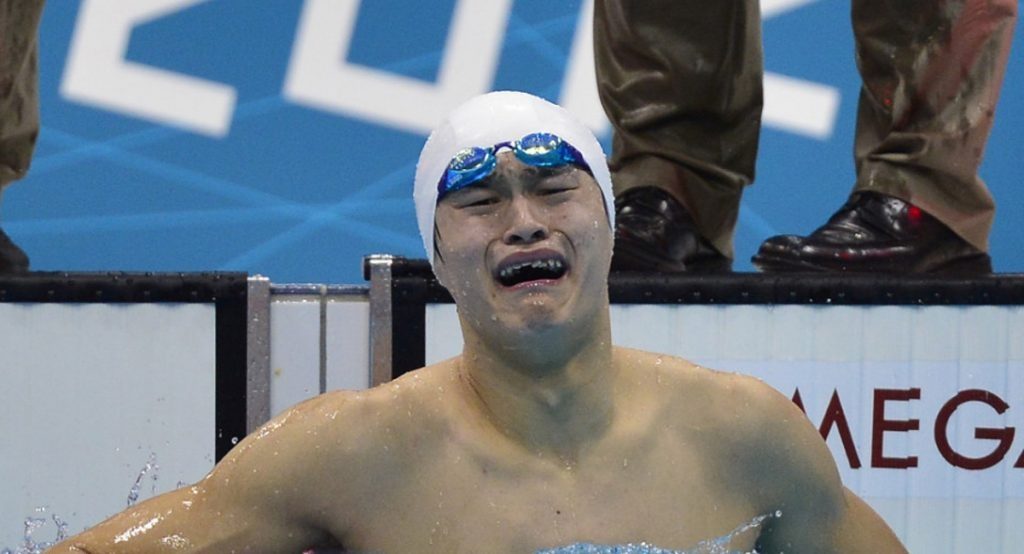Lausanne: China’s triple Olympic swimming gold medallist Sun Yang has been found guilty of refusing to give a doping sample and banned for eight years in an eagerly-awaited judgement Friday from the Court of Arbitration for Sport (CAS).
The Lausanne-based CAS upheld the appeal by the World Anti-Doping Agency (WADA) against the International Swimming Federation (FINA) and Sun, one of China’s most recognisable athletes who had already served a doping ban in 2014.
Sun, who was accused of refusing to provide blood and urine samples when drug testers visited his home in China in September 2018, has the right to appeal the ruling at the Swiss federal court.
A vial of Sun’s own blood sample was smashed with a hammer during the testing session, but the swimmer was acquitted by FINA of anti-doping violations, agreeing that testers had failed to produce adequate identification.
But the ruling outraged WADA which took the matter to CAS, demanding a ban of between two and eight years for missing the out-of-competition test.
CAS said its panel had ‘unanimously determined’ that Sun had tampered with his doping control. Taking into consideration his previous doping ban, CAS said it had imposed the stiffest eight-year sanction.
“The athlete failed to establish that he had a compelling justification to destroy his sample collection containers and forego the doping control when, in his opinion, the collection protocol was not in compliance with the ISTI (International Standard for Testing and Investigations),” CAS said in a statement.
“It is one thing, having provided a blood sample, to question the accreditation of the testing personnel while keeping the intact samples in the possession of the testing authorities; it is quite another thing, after lengthy exchanges and warnings as to the consequences, to act in such a way that results in destroying the sample containers, thereby eliminating any chance of testing the sample at a later stage,” it added.
WADA director general Olivier Niggli welcomed the CAS decision as a ‘significant result’.
“WADA decided to appeal the original FINA ruling having carefully reviewed it and having concluded that there were a number of points that seemed to be incorrect under the (World Anti-Doping) Code. Today’s CAS ruling confirms those concerns and is a significant result,” Niggli said.
The rise and fall of Sun Yang
2009: Sun wins his first major medal at the age of 17, taking 1500m freestyle bronze at the World Championships in Rome.
2010: Sun wins gold in the 1,500m and 4x200m freestyle relay at the Asian Games in Guangzhou.
2011: Sun shatters Grant Hackett’s 10-year-old 1,500m world record and also wins the 800m gold in front of his home crowd at the World Championships in Shanghai.
2012: Sun is edged into silver in the 200m freestyle at the London Olympics, but strikes gold in the 400m and 1500m.
2014: Sun wins triple gold at the Asian Games in Incheon, but it later emerges that he served a three-month suspension for taking the banned stimulant trimetazidine.
2016: Australian rival Mack Horton brands Sun ‘a drug cheat’ at the Rio Olympics and pips the Chinese to gold in the 400m freestyle. Sun recovers to win the 200m title.
2019: Sun’s career is thrown into doubt after ‘The Sunday Times’ in Britain alleges that a vial of his blood was smashed with a hammer during a dispute with anti-doping testers who visited his home.
2019: Horton refuses to pose for pictures with Sun on the medal podium, a protest repeated by Britain’s bronze medallist Duncan Scott. Sun tells Scott: “I win, you loser.”
2020: Sun is banned for eight years by the Court of Arbitration for Sport
Agencies
